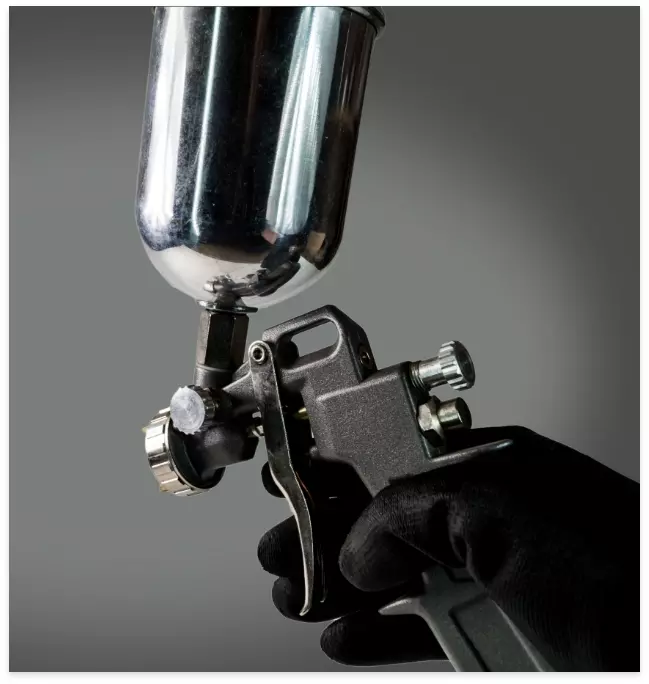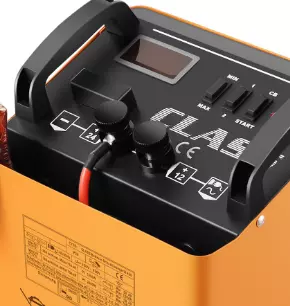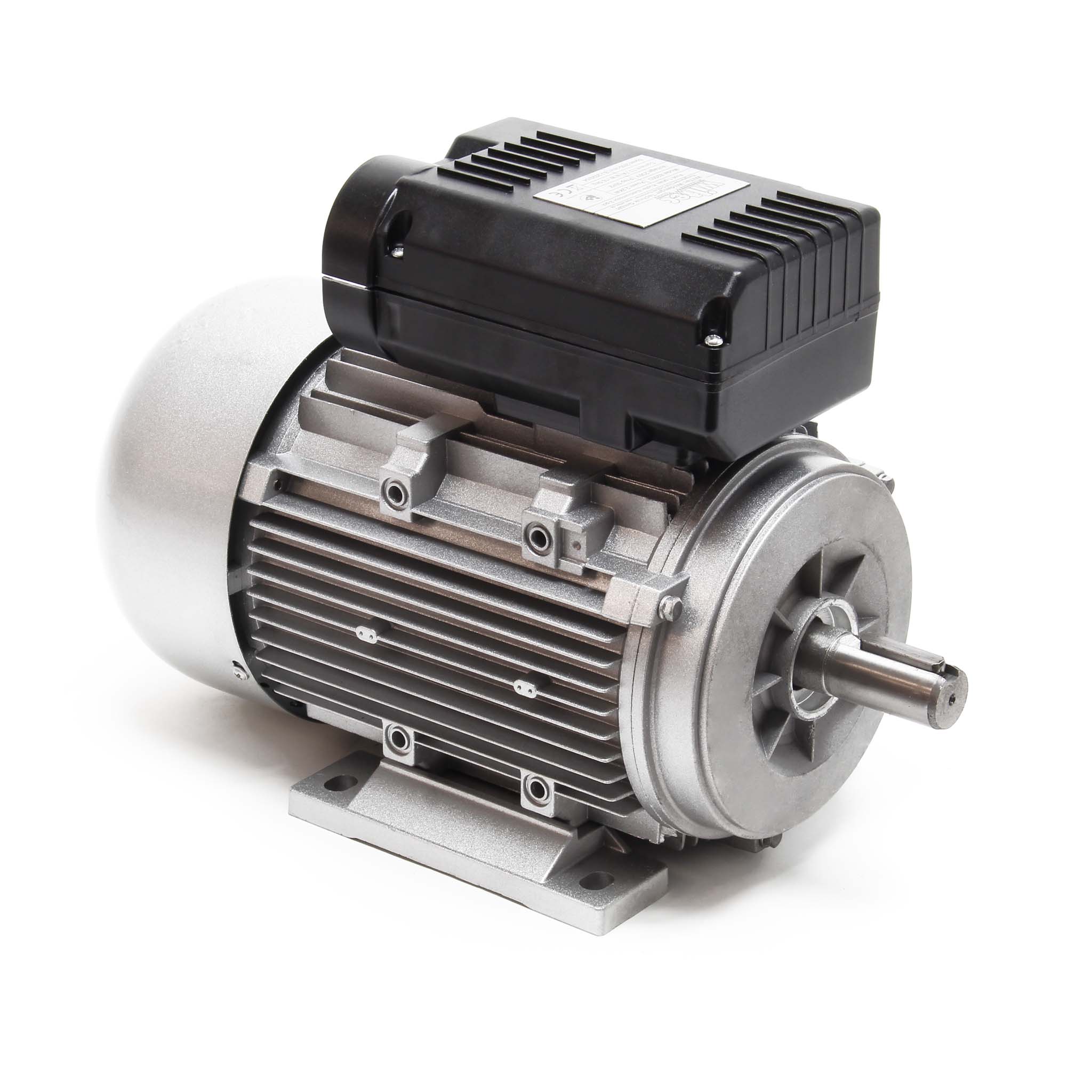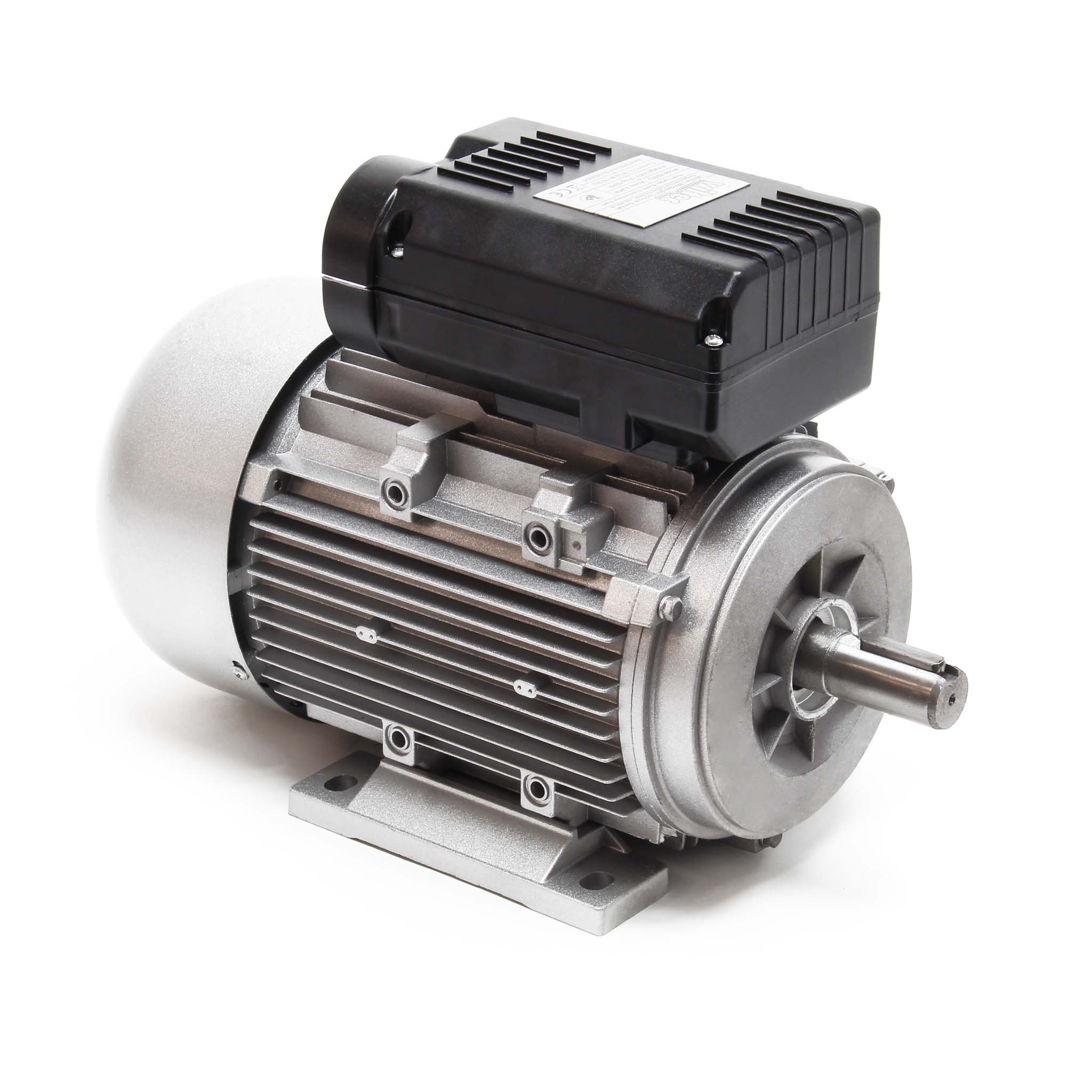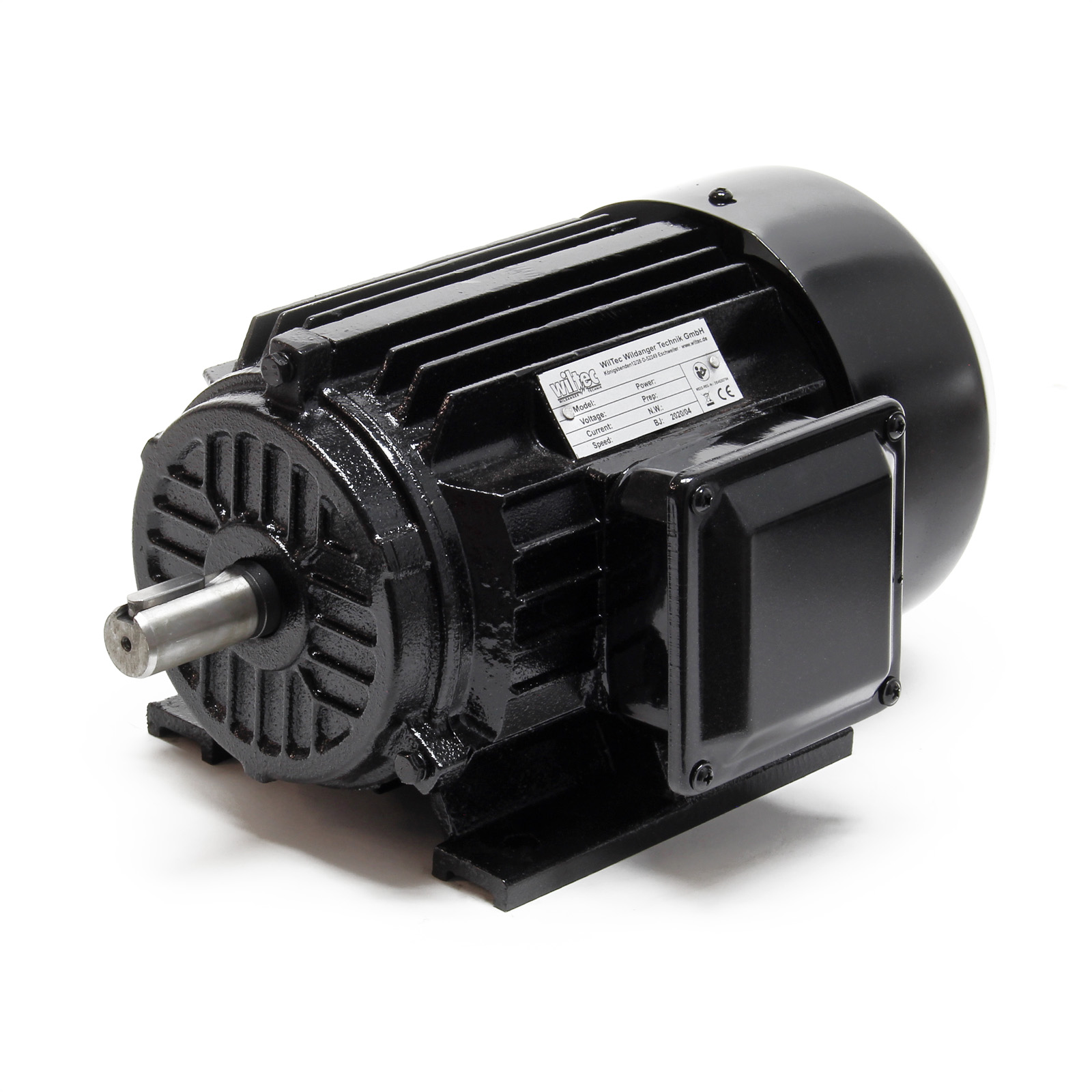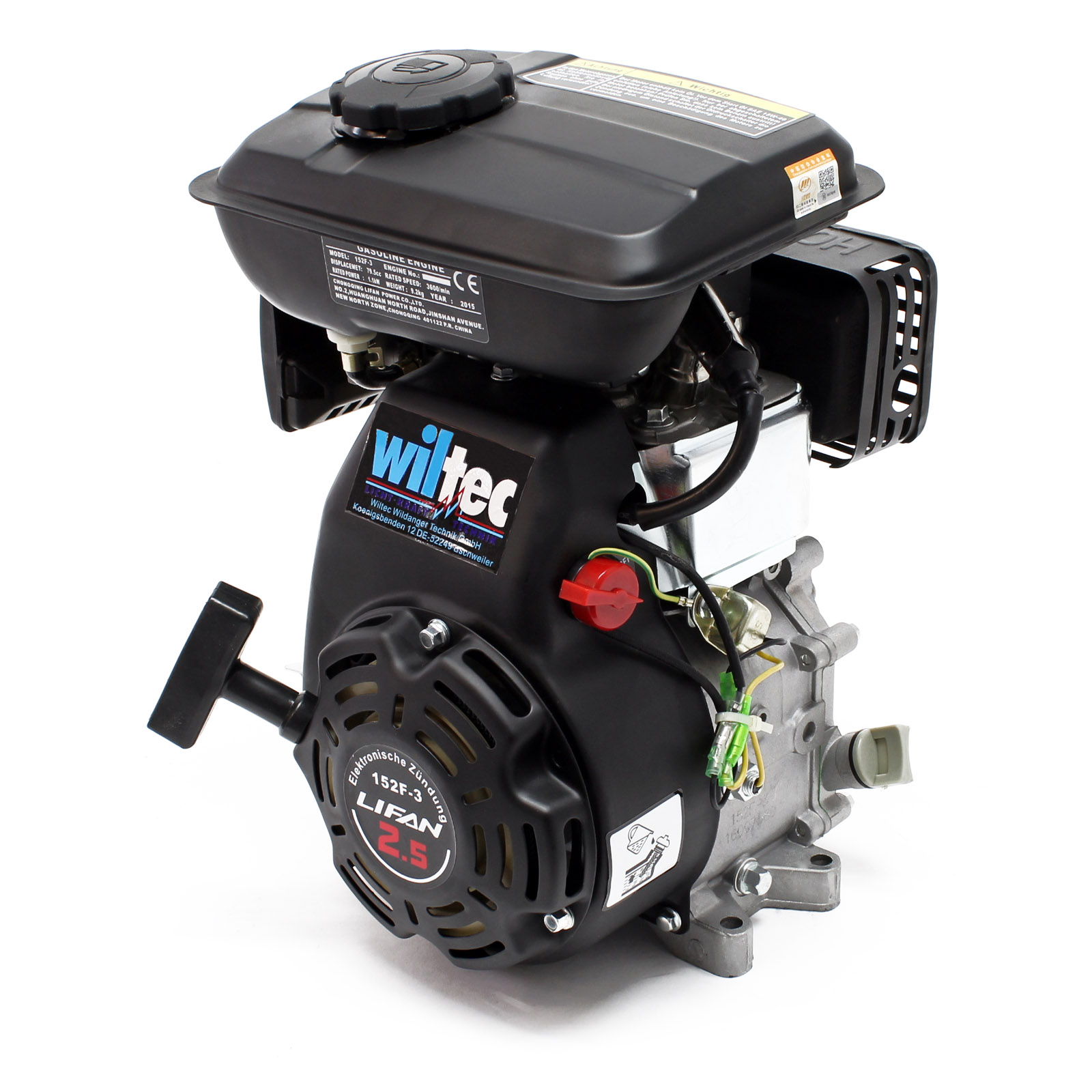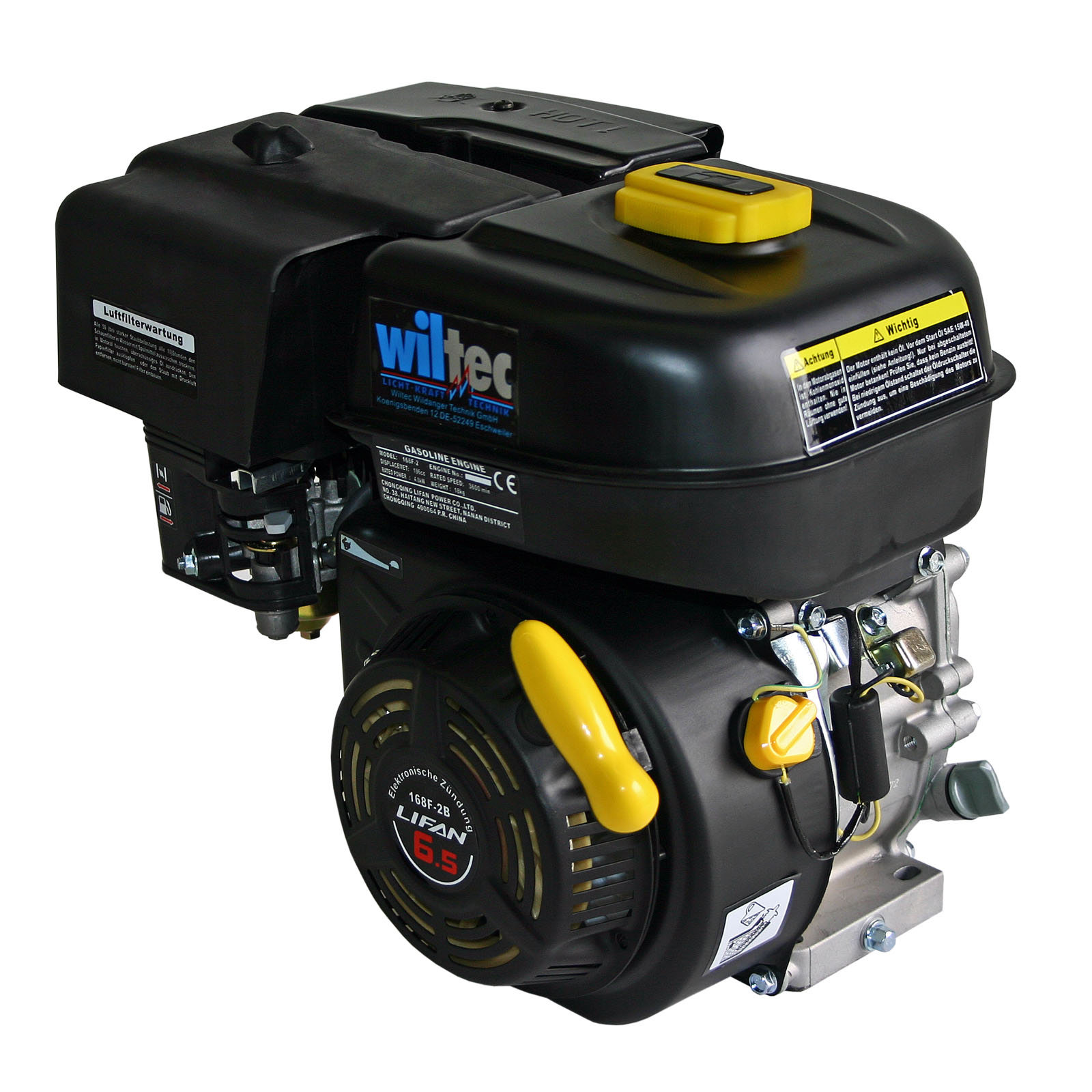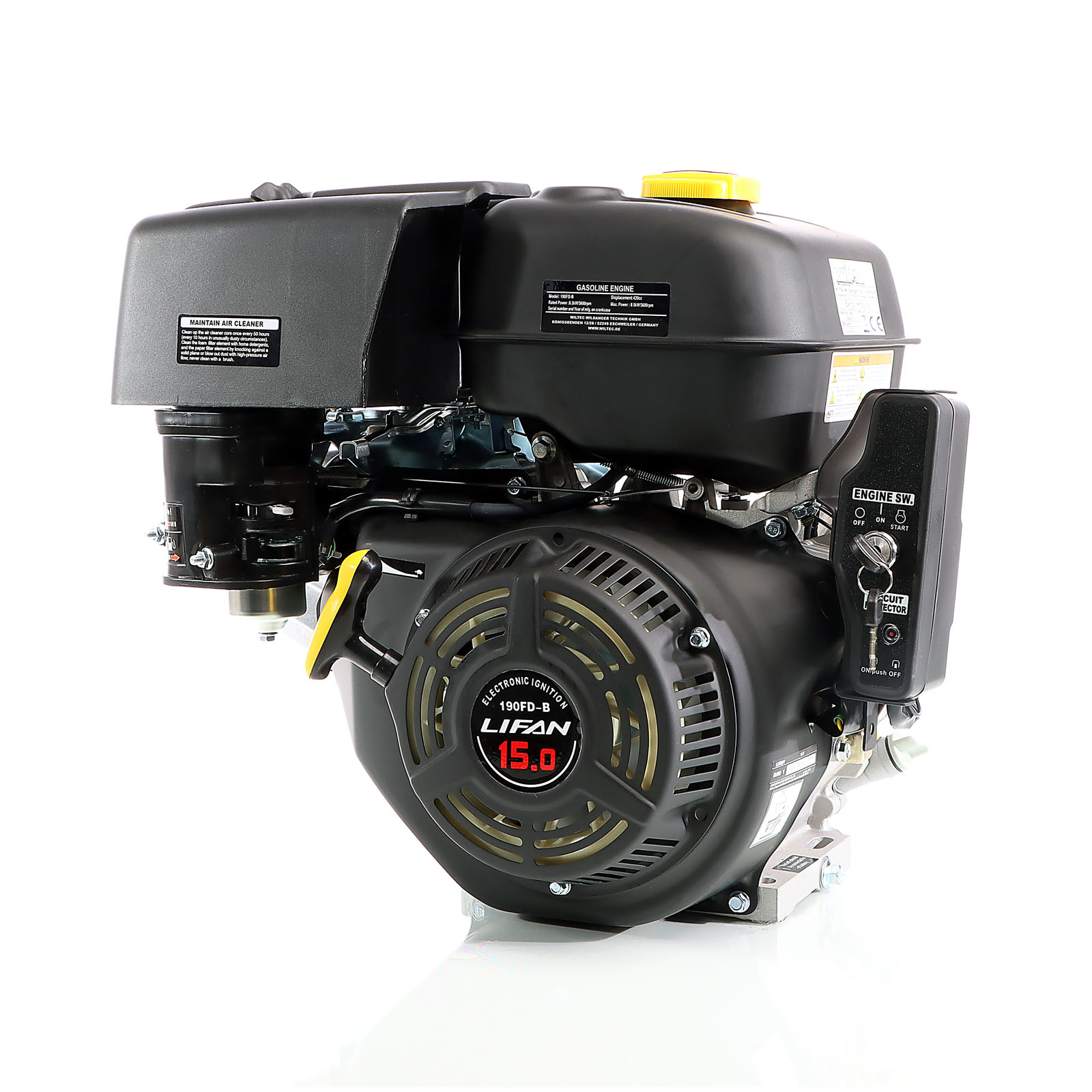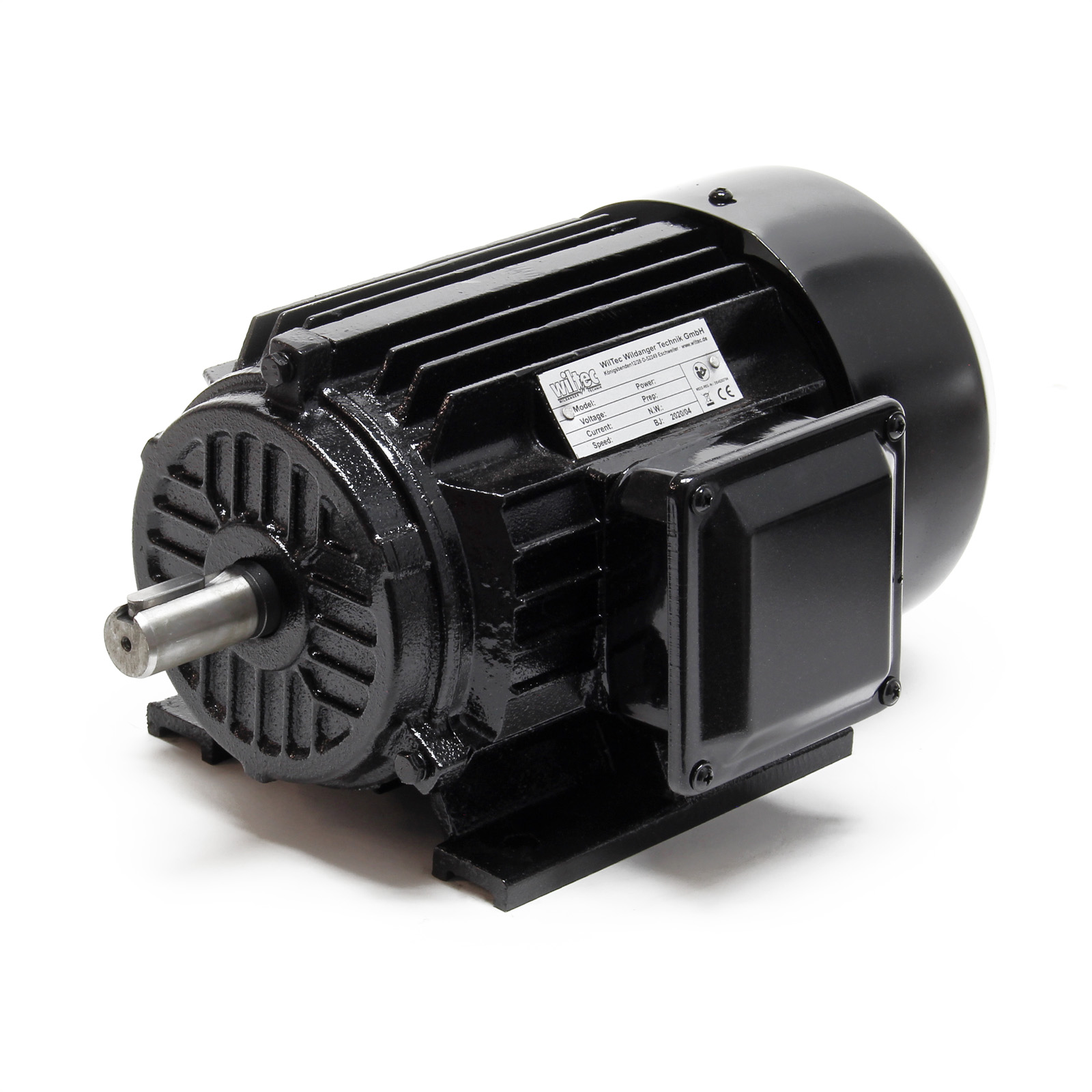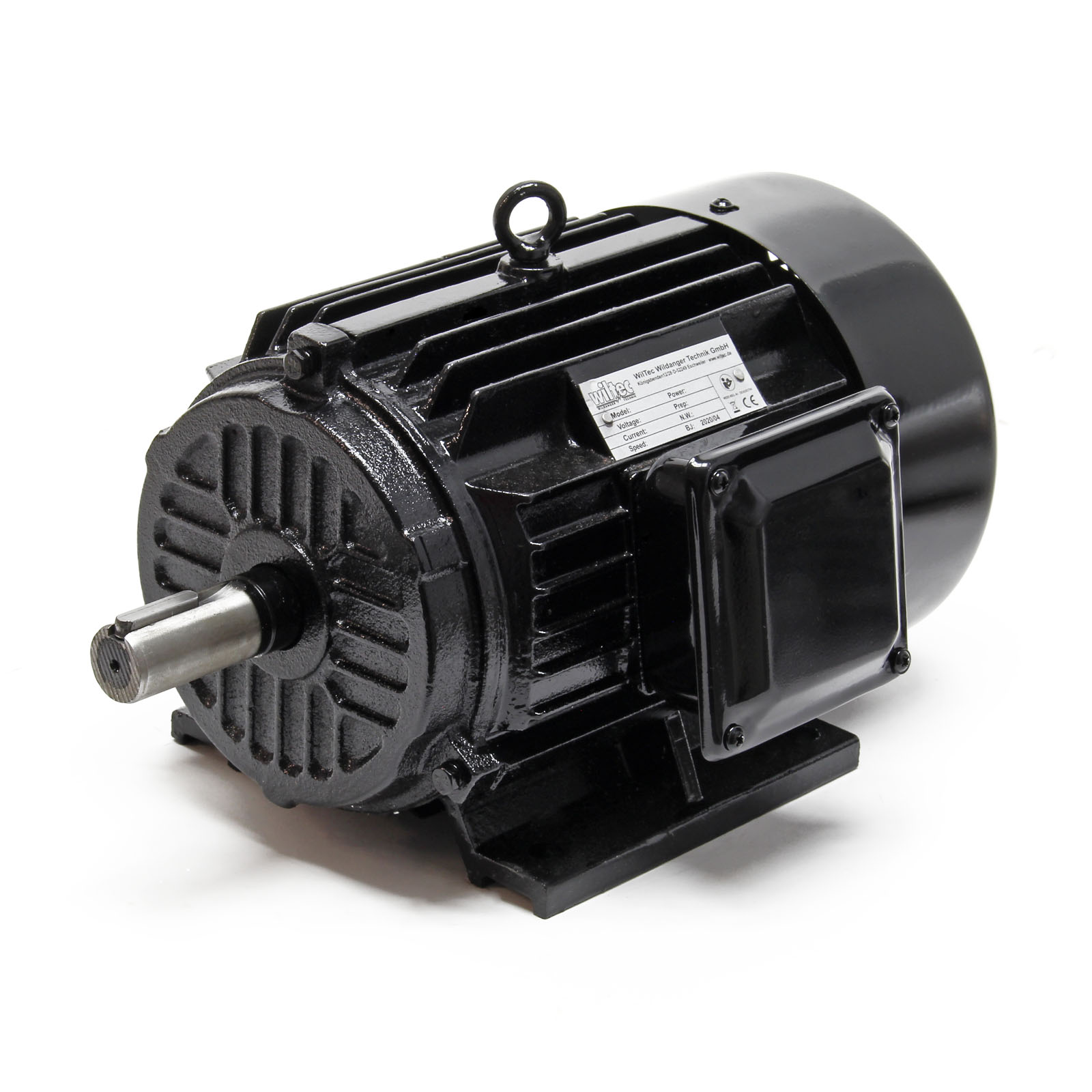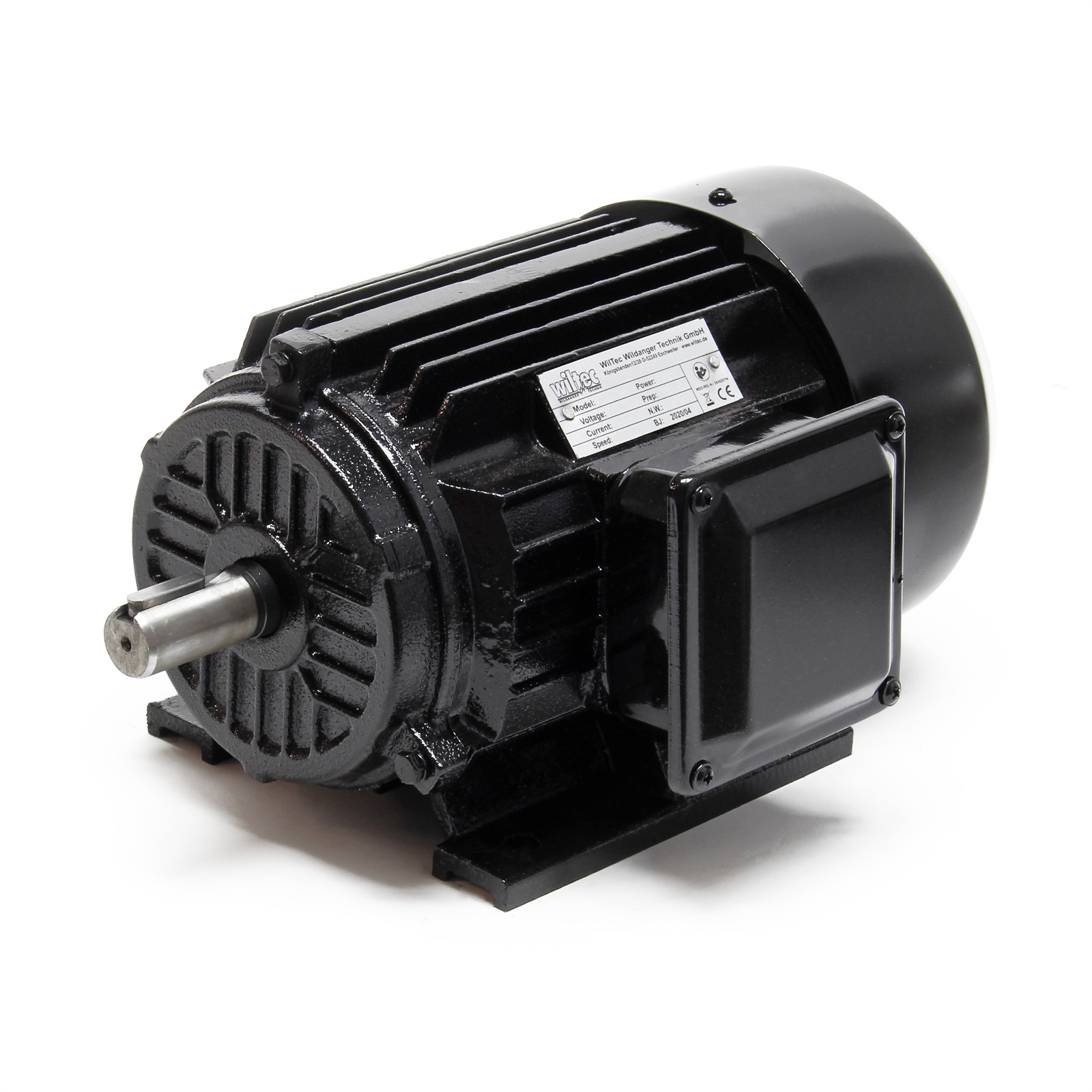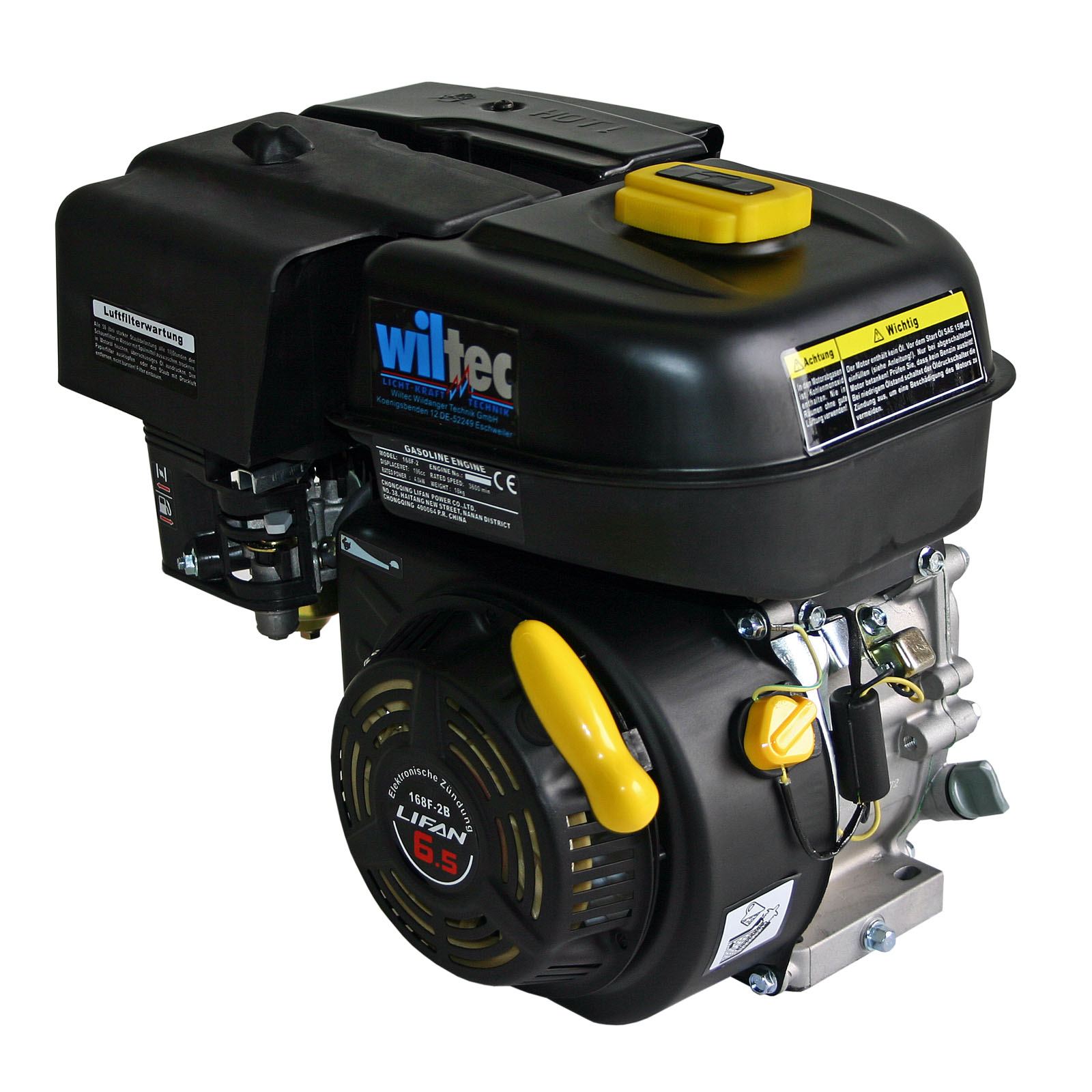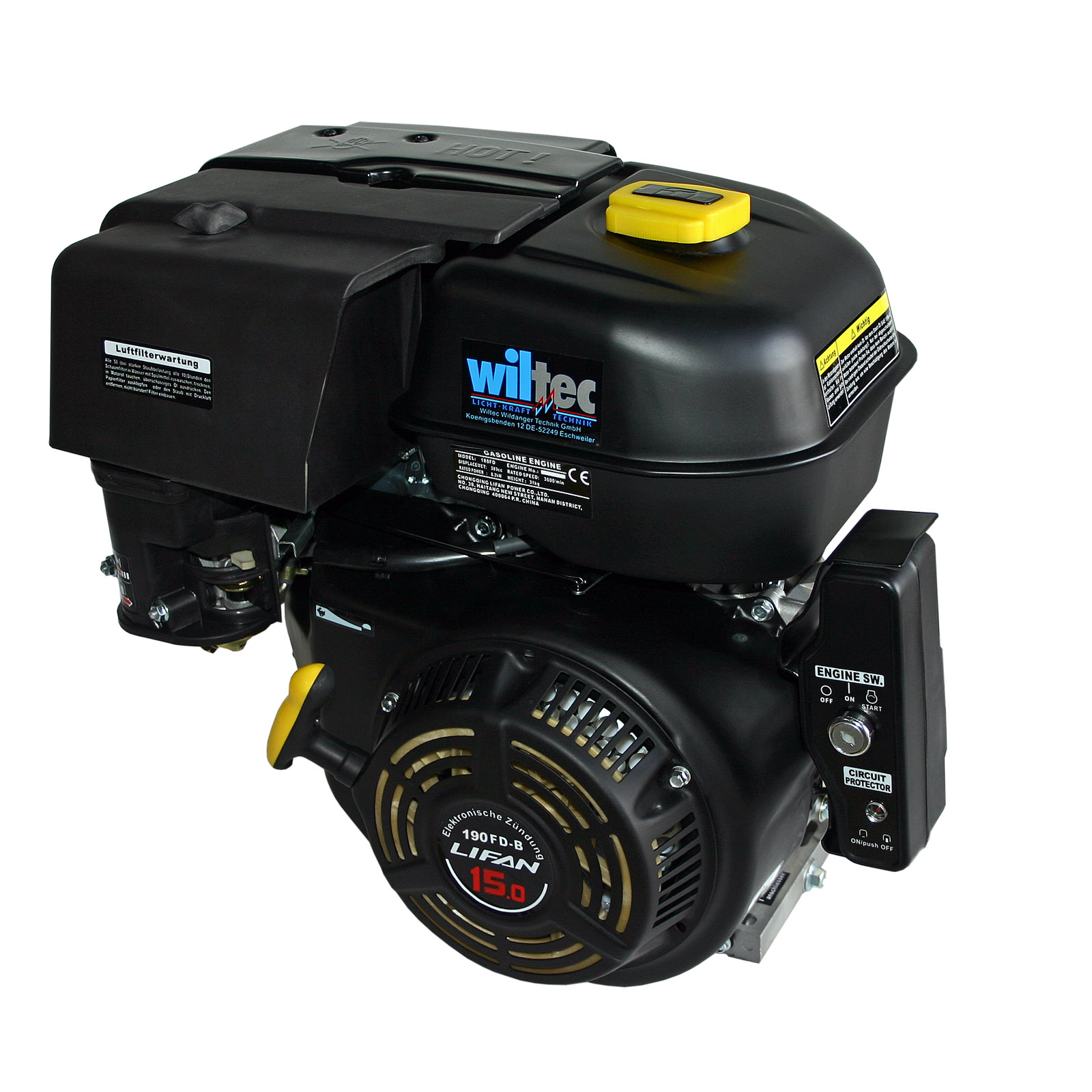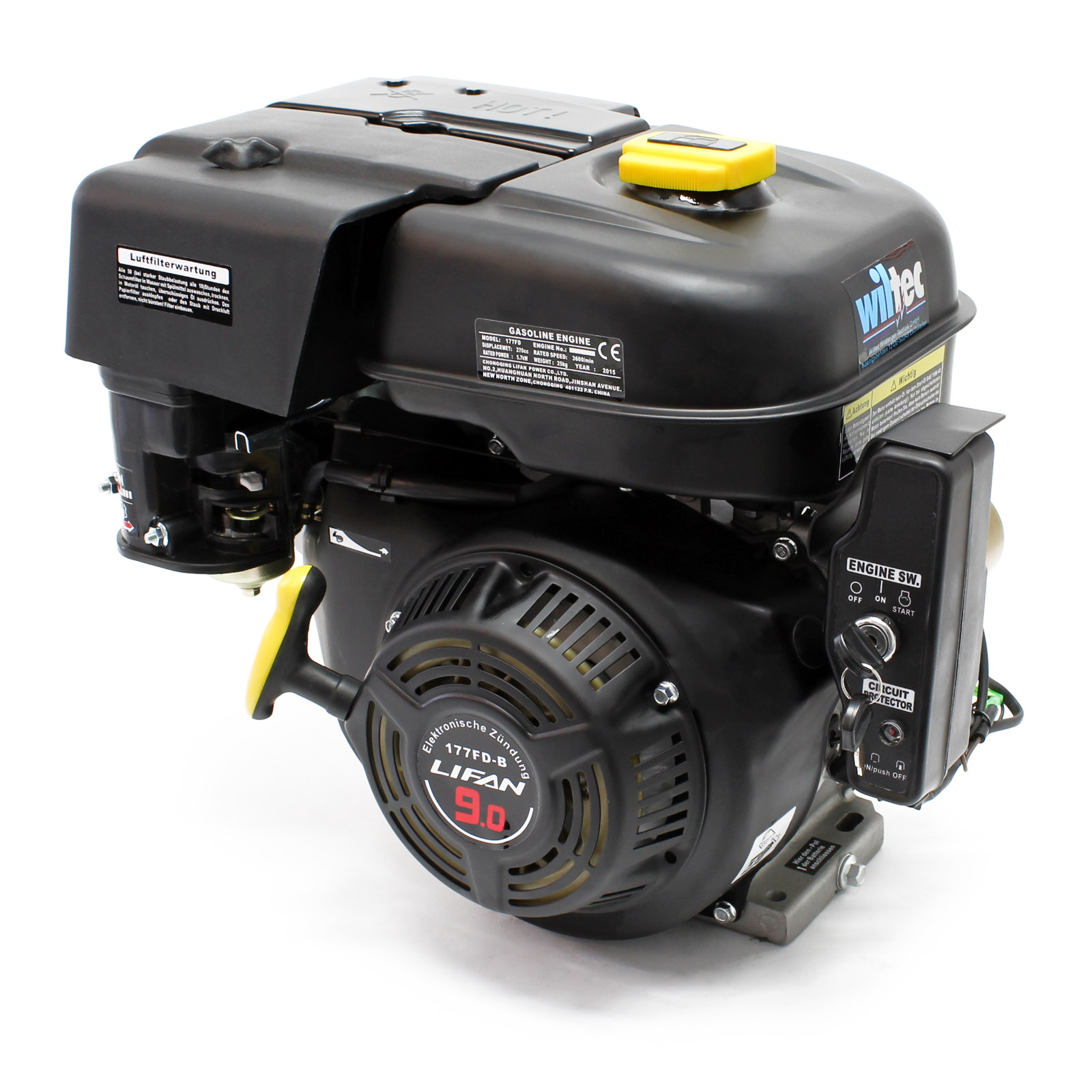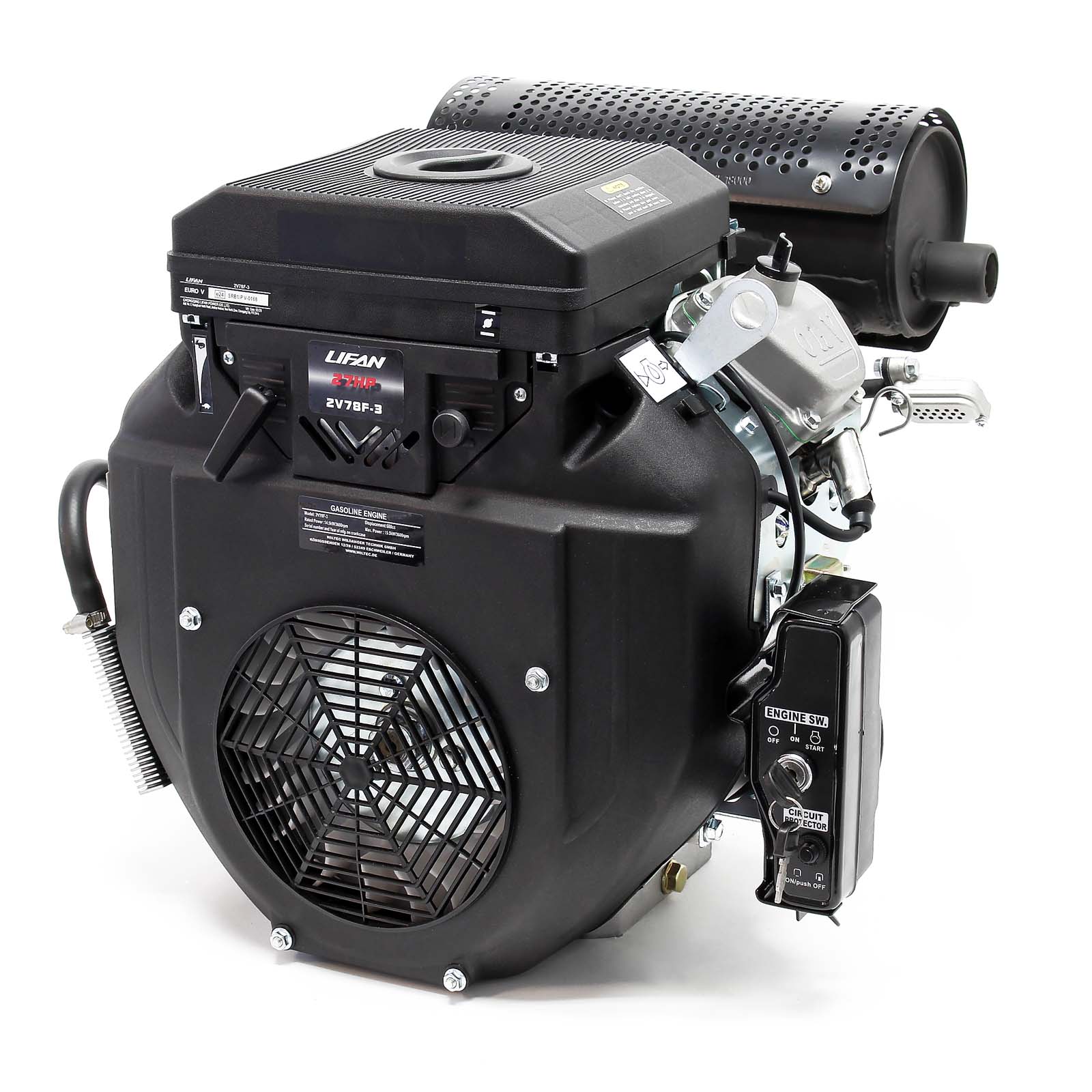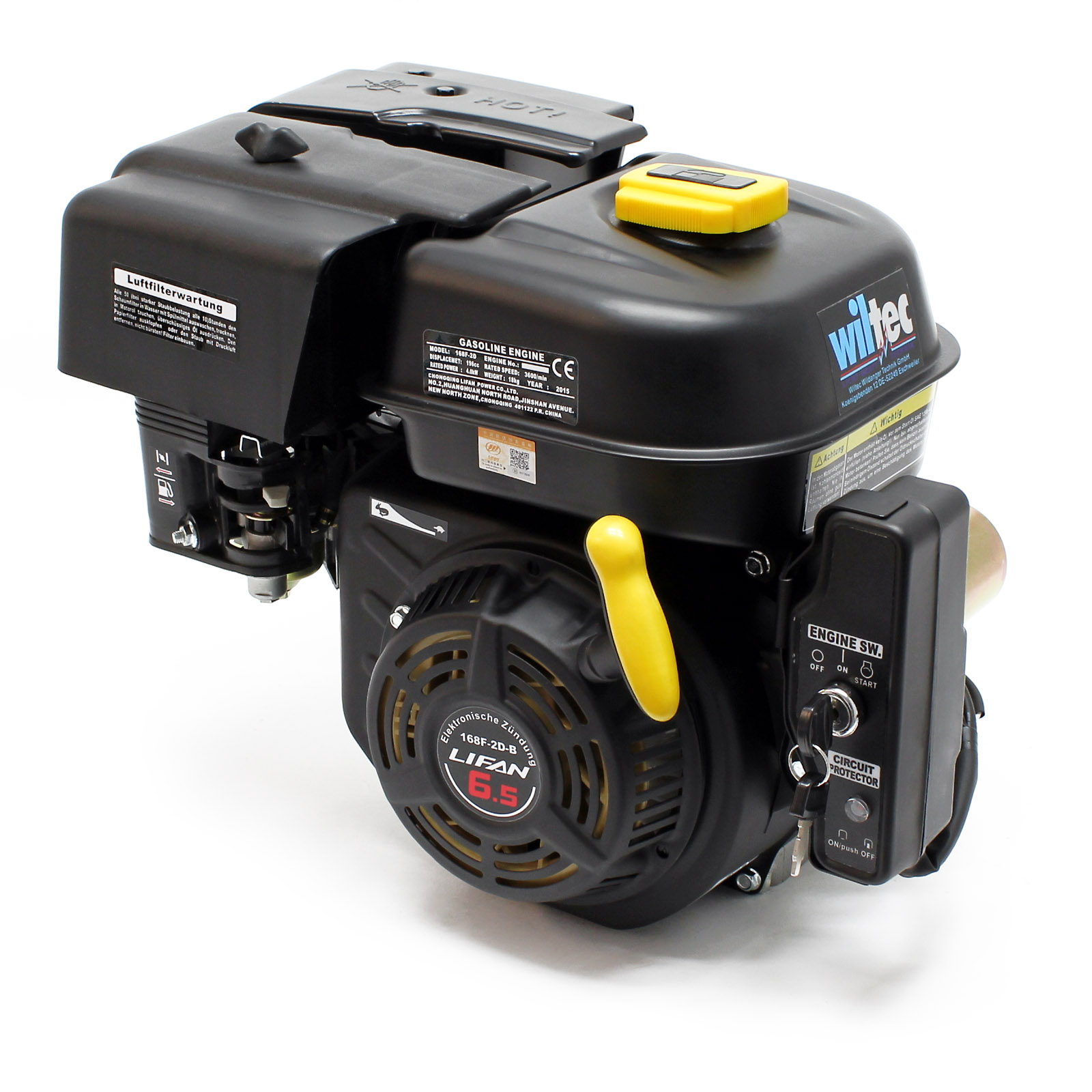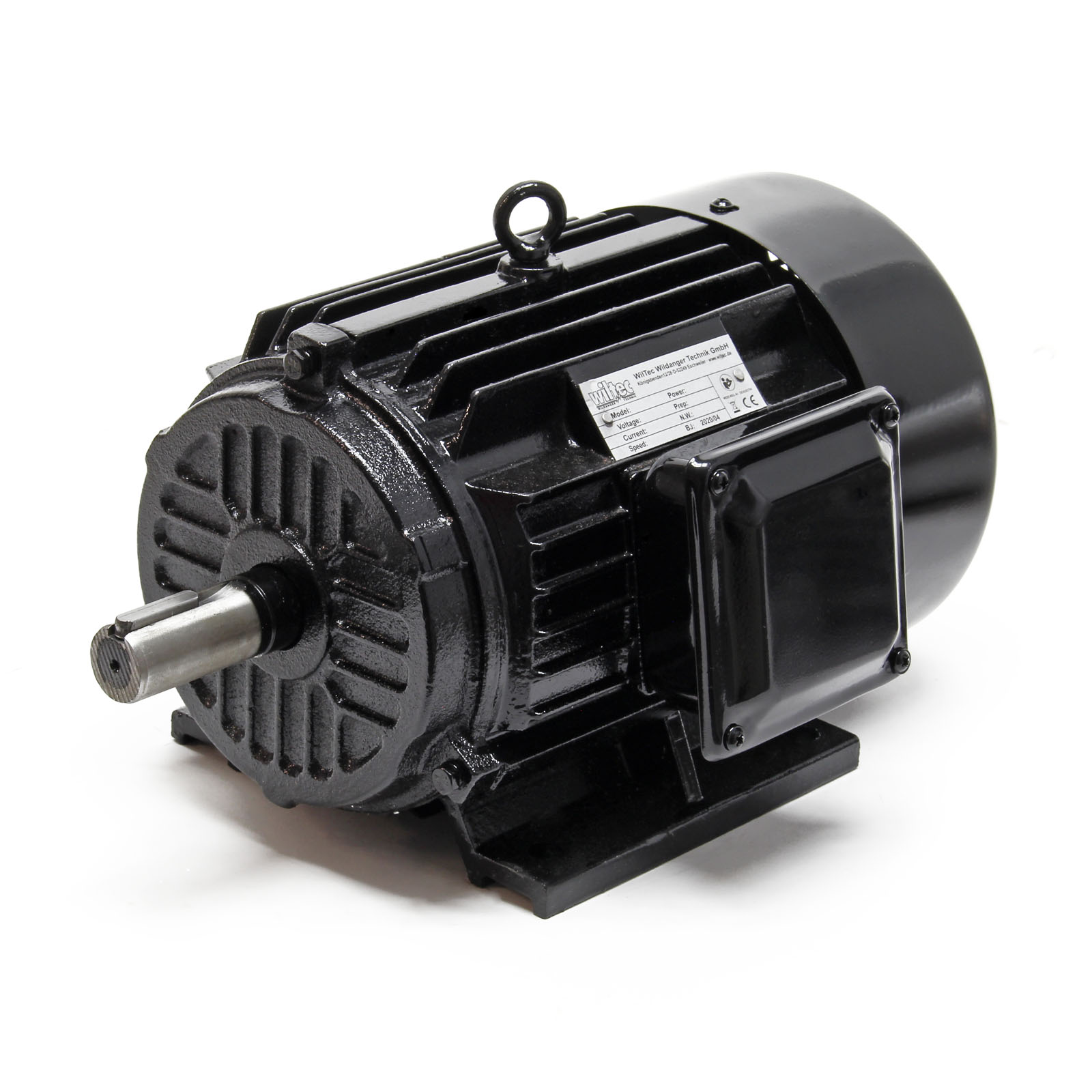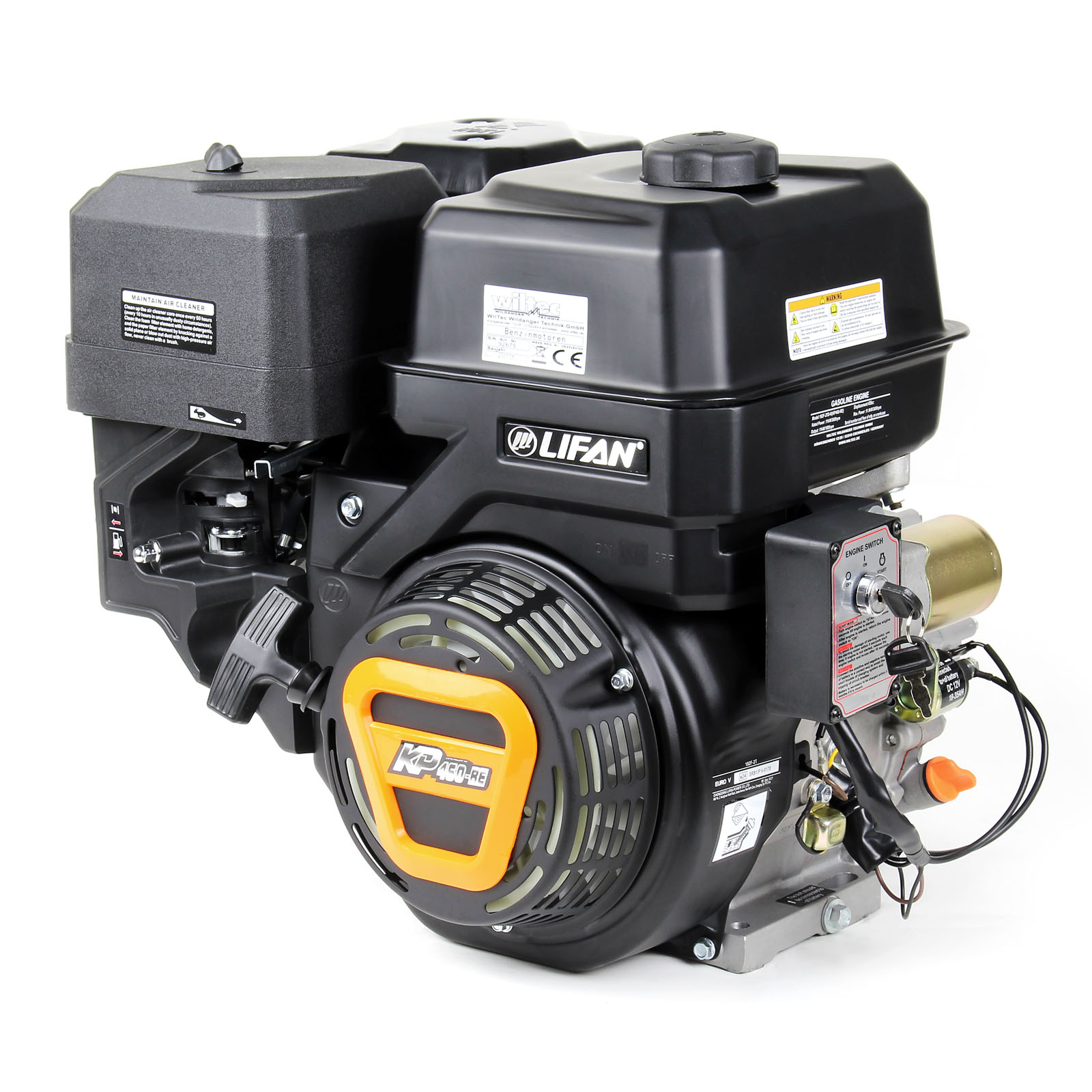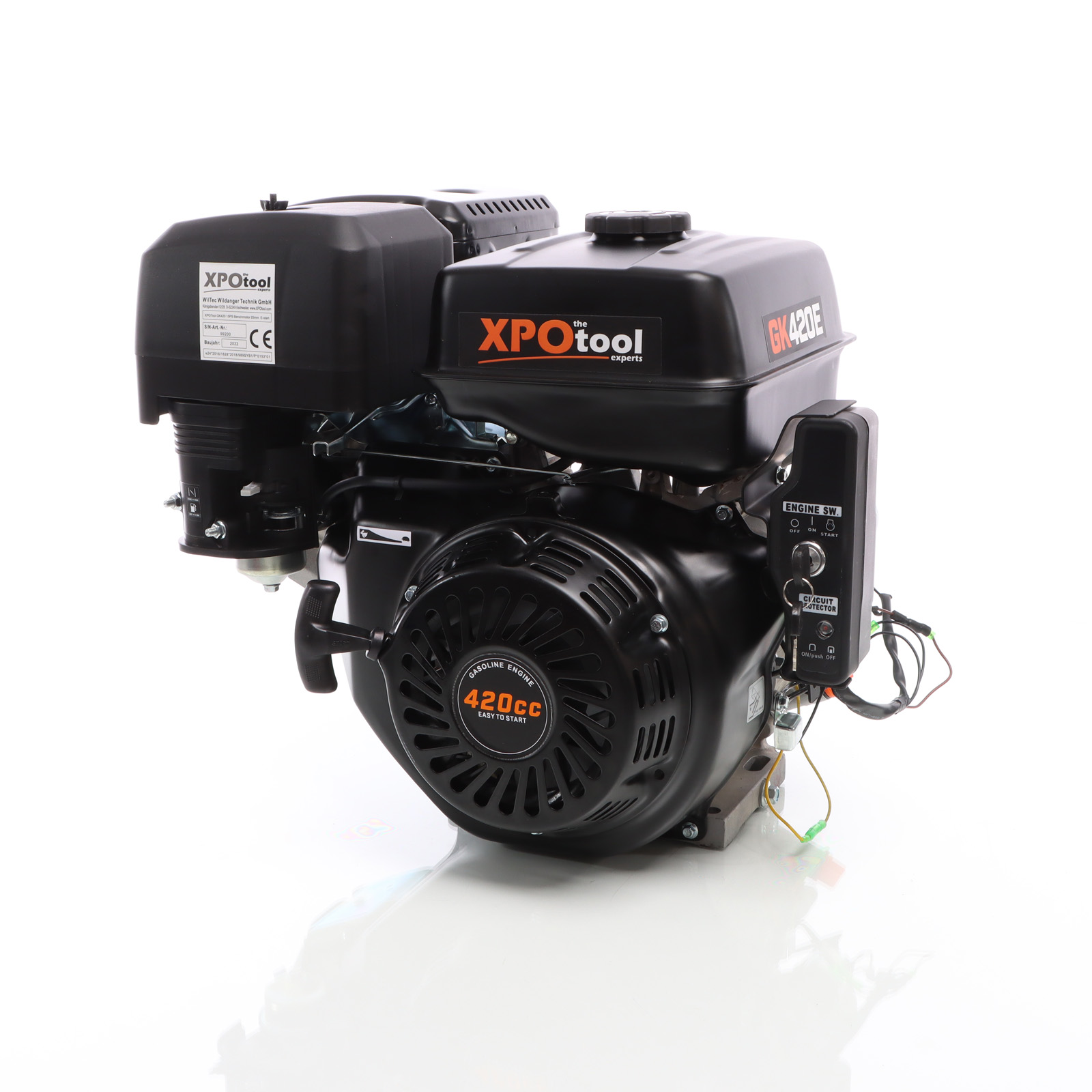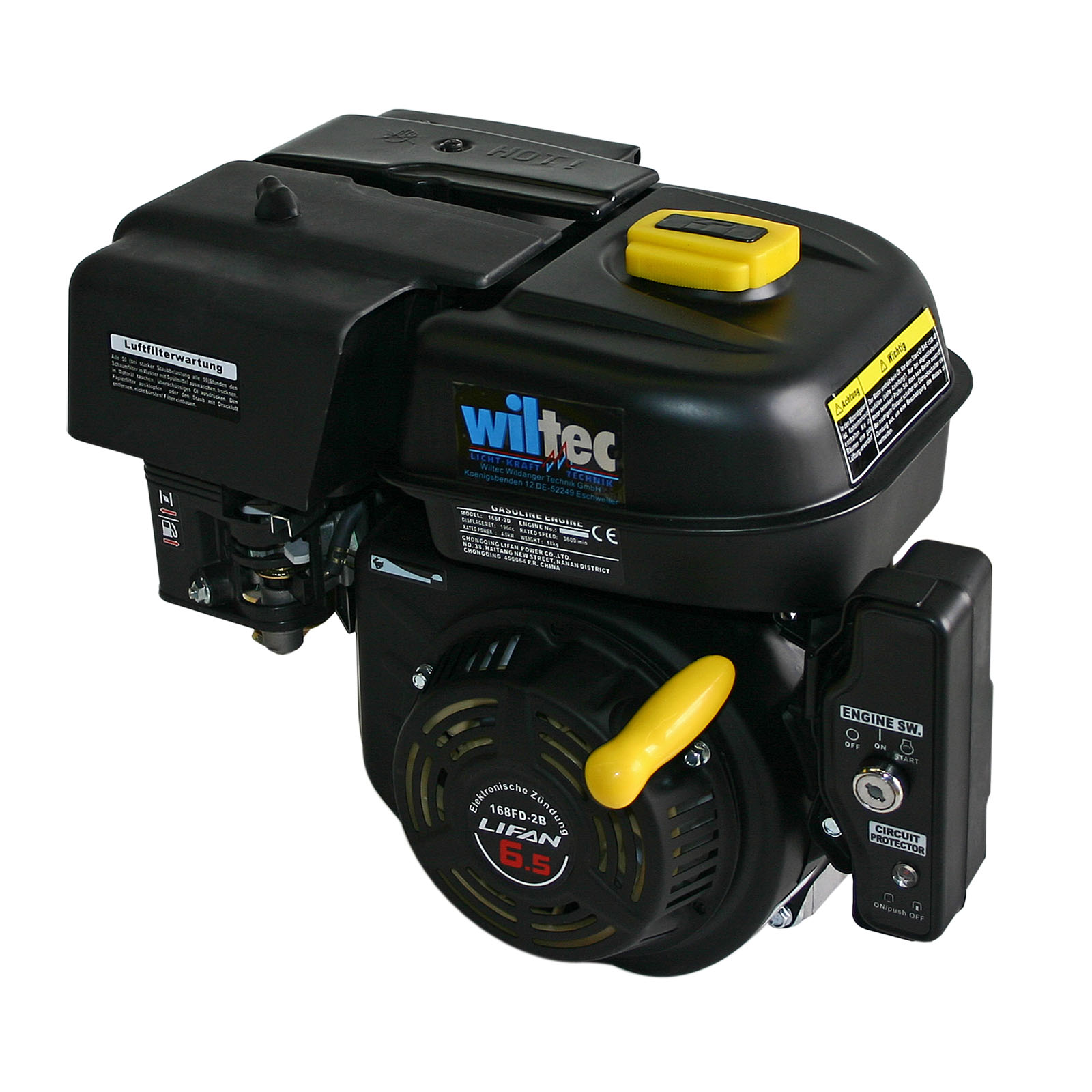Motors
Available in 35 days, delivery time 2 - 3 days
• Single-phase with a protection class IP55
• Additional starting capacitor with 200 µF
• Built-in overload protector
• Aluminium wire coil
Available, delivery time: 2 - 3 days
• Single-phase with a protection class IP55
• Additional starting capacitor with 200 µF
• Built-in overload protector
• Aluminium wire coil
Available in 75 days, delivery time 2 - 3 days
• Single-phase with a protection class of IP55
• Additional starting capacitor with 200 µF
• Built-in overload protector
• Copper wire coil
Available in 35 days, delivery time 2 - 3 days
• Single-phase with a protection class of IP55
• Additional starting capacitor with 200 µF
• Built-in overload protector
• Copper wire coil
Available in 35 days, delivery time 2 - 3 days
• Double-pole with a protection class of IP44
• Power output of 2.2 kW (3 HP)
• 2830 rotations per minute
• Aluminium wire coil
Currently not available
• Electric start engine
• 4 stroke, air cooled, OHV engine
• Max. 15.6 hp / 11.5 kW / 3600 rpm
• Crankshaft: 25.4 mm, displacement: 459 cc
Available, delivery time: 2 - 3 days
• Manual start
• 4-stroke, air-cooled, OHV, single cylinder
• LIFAN 152, 2, 45-hp gasoline engine
Available, delivery time: 2 - 3 days
• recoil starter
• 4-stroke, single cylinder, air-cooled
• LIFAN 168F-2BR, 4.8 kW (6.5 hp) petrol engine
Available, delivery time: 2 - 3 days
• Recoil
• 4-stroke, single cylinder, air-cooled
• LIFAN 168F-2B, 4.8 kW (6.5 hp) petrol engine
Currently not available
• With electric starter
• 4-stroke, single cylinder, air-cooled, OHV
• LIFAN 190 FD-B, 10 kW (15 hp) petrol engine
Available, delivery time: 2 - 3 days
• Double-pole with a protection class of IP44
• Power output of 1.5 kW (2 HP)
• 2830 rotations per minute
• Aluminium wire coil
Currently not available
• Electric start engine
• 4 stroke, air cooled, OHV engine
• Tare weight 48 kg
• Max. power: 16 kW / 3,000 rpm
Available, delivery time: 2 - 3 days
• Double-pole with a protection class of IP44
• Power output of 3 kW (4 HP)
• 2840 rotations per minute
• Aluminium wire coil
Available, delivery time: 2 - 3 days
• Three-phase with a protection class of IP44
• Shaft diameter 24 mm
• Engine layout B3
• Copper wire coil
Available, delivery time: 2 - 3 days
• Recoil
• 4-stroke, single cylinder, air-cooled
• LIFAN 168F-2B, 4.8 kW (6.5 hp) petrol engine
Available, delivery time: 2 - 3 days
• With electric starter
• 4-stroke, single cylinder, air-cooled, OHV
• Empty weight 32 kg
• LIFAN 190 FD-B, 11 kW (15 hp) petrol engine
Available, delivery time: 2 - 3 days
• E-Start
• 4-stroke, air-cooled, OHV, single cylinder
• LIFAN 177FD-BR, 6.6 kW (9 hp) petrol engine
Currently not available
• Electric start
• 4-stroke, air cooled, OHV
• Empty weight 46 kg
• LIFAN 2V78F-3, 15 kW (20.4 hp) petrol engine
Available, delivery time: 2 - 3 days
• Electric starter (E-starter)
• 4-stroke, air-cooled, OHV, single cylinder
• LIFAN 168, 4.8 kW (6.5 hp) gasoline engine
Available, delivery time: 2 - 3 days
• Three-phase with a protection class of IP44
• Shaft diameter 28 mm
• Engine layout B3
• Copper wire coil
Available, delivery time: 2 - 3 days
• With pull start and 223cc displacement
• Air-cooled 4-stroke engine with OHV
• Max. 6.5 hp / 4.8 kW / 3,600 rpm
• Wet clutch with ø 22 mm output shaft
Available, delivery time: 2 - 3 days
• Equipped with electric start
• Air-cooled four-stroke engine
• Max. 16.3 hp / 12 kW / 3600 rpm
• With 22 mm output shaft and OHV
Available, delivery time: 2 - 3 days
• Single-cylinder engine with Electro start (E start)
• Max. power output 8.8 kW/15 hp/3600 rpm
• Air-cooled 4-stroke engine with OHV
• Crankshaft ø 25 mm and 6.5-l tank
Available, delivery time: 2 - 3 days
• With E-start
• 4-stroke, single cylinder, air-cooled
• LIFAN 168 FD-2B, 4.8 kW (6.5 hp) petrol engine
Motors
Powering Possibilities in Precision Machinery
In the intricate world of machinery, the Motors category emerges as the driving force, propelling a vast array of engines designed to meet diverse needs. From the robust hum of petrol engines to the sleek efficiency of electric motors, this exploration delves into the intricacies, advantages, and applications of these mechanical wonders.
Electric Motors: Precision in a 1-Phase Realm
1-Phase Electric Motors: Dynamics at a Glance
Electric motors, operating in a 1-phase configuration, epitomize precision engineering. With 2-pole dynamics and a voltage of 230V, these motors deliver 2.2 kW, translating to 3PS, and rotate at a speed of 2850 rpm. The IP55 rating ensures resilience against external elements, making them versatile for a spectrum of applications.
Professional Electric Motors: Elevating Performance
For those seeking an extra layer of professionalism, the 1-phase, 2-pole electric motors at 1.5 kW and 2850 rpm offer a perfect blend of power and efficiency. The aluminium winding, 200 µF starting capacitor, and integrated overload protection make these motors reliable companions in precision machinery.
3-Phase Electric Motors: Unleashing Power in Triads
Venturing into the realm of industrial power, 3-phase electric motors dominate with a 2.2 kW output, 3PS, and 2830 rpm. Operating at 400V, these motors exhibit the efficiency of asynchronous three-phase current, embodying the epitome of power and stability with an IP44 rating.
Professional Copper Electric Motors: The Pinnacle of Strength
For applications demanding robustness, the professional copper electric motors at 400V, 3-phase, and 2-pole configuration deliver either 3 kW or 2.2 kW. With shaft diameters ranging from 24 to 28 mm, these motors, in design B3 and IP44, operate at a brisk 2840 rpm, offering unparalleled strength and endurance.
Petrol Motors: Lifan, XPOtool, and Wiltec Leading the Charge
Diverse Outputs: Tailoring Power to Needs
Lifan, XPOtool, and Wiltec converge to offer petrol motors with outputs ranging from 2.45 hp to a staggering 20.4 hp. Whether you're powering small machines, chainsaws, lawn blowers, lawn trimmers, karts, vibratory plates, or construction machinery, the diversity in outputs ensures a perfect match for your application.
Start Options: Manual vs. Electric
The petrol motors come equipped with both manual and electric starters, providing flexibility based on model and user preference. This versatile feature ensures convenience in initiating power, catering to a range of user scenarios.
2-Stroke and 4-Stroke Engines: The Great Debate
The choice between a 2-stroke and a 4-stroke engine depends on specific needs and applications. While a 2-stroke engine delivers power with each revolution of the crankshaft, a 4-stroke engine divides the power cycle into four distinct phases, offering a more consistent power delivery. The decision hinges on factors such as efficiency, emissions, and application requirements.
Cylinder Configurations: Tailoring Performance
Petrol motors offer options for both single-cylinder and twin-cylinder configurations. Single-cylinder engines are compact and straightforward, while twin-cylinder engines provide smoother operation and enhanced power delivery. The choice depends on the desired balance between simplicity and performance.
Cooling Mechanisms: Air-Cooled vs. OHV
The cooling mechanism is a critical aspect of petrol engines. Air-cooled engines are simpler and lighter, ideal for smaller applications. On the other hand, engines with Overhead Valve (OHV) configurations enhance efficiency and performance, making them suitable for larger and more demanding tasks.
Additional Features: From Crankshafts to Oil Bath Clutches
The petrol motors come equipped with features such as crankshafts for smooth power delivery, aluminium windings for durability, reversing starts for added convenience, and oil bath clutches with reduction gears for enhanced control.
Answering the Mechanics' Queries
Which Engine is Better: 2-Stroke or 4-Stroke?
The choice between a 2-stroke and a 4-stroke engine depends on the specific requirements of the application. While 2-stroke engines offer simplicity and higher power-to-weight ratios, 4-stroke engines provide better fuel efficiency and lower emissions. Considerations such as power needs, emissions regulations, and maintenance preferences guide the decision.
Advantages of a Three-Phase Asynchronous Motor
Three-phase asynchronous motors, like the 3-phase electric motors mentioned earlier, offer several advantages. They deliver a more constant and smoother power output, exhibit higher efficiency, and are known for their robustness and reliability. These motors are widely used in industrial applications where continuous and stable power is essential.
Difference Between Synchronous and Asynchronous Motors
The primary difference lies in how these motors synchronize with the power supply. Synchronous motors operate at a fixed speed that synchronizes with the frequency of the power supply. In contrast, asynchronous motors, also known as induction motors, don't operate at a fixed speed. They run at a slightly slower speed than the synchronous speed, providing versatility in various applications.
Simply Explained: What is an Electric Motor?
An electric motor is a device that converts electrical energy into mechanical energy. It operates based on the principle of electromagnetic induction, where an electric current in a wire creates a magnetic field, resulting in the rotation of a shaft. Electric motors find applications in various devices, from household appliances to industrial machinery, providing a crucial mechanism for converting energy efficiently.
About Lifan: Pioneering Power Solutions
Lifan, a prominent player in the world of motors, stands as a testament to innovation and reliability. With a commitment to providing high-quality power solutions, Lifan has established itself as a trusted brand. From petrol engines to electric motors, Lifan continues to drive advancements, empowering various industries with cutting-edge technology.
In conclusion, the Motors category unfolds as a comprehensive guide through the intricacies of petrol and electric engines. From the precision of electric motors to the power-packed performance of petrol engines, this exploration aims to enlighten users and enthusiasts alike. Whether you're navigating the complexities of cylinder configurations or deciding between 2-stroke and 4-stroke engines, understanding the mechanics behind these powerhouses is essential. Wiltec, along with renowned brands like Lifan and XPOtool, remains committed to providing solutions that power possibilities in machinery and beyond.













